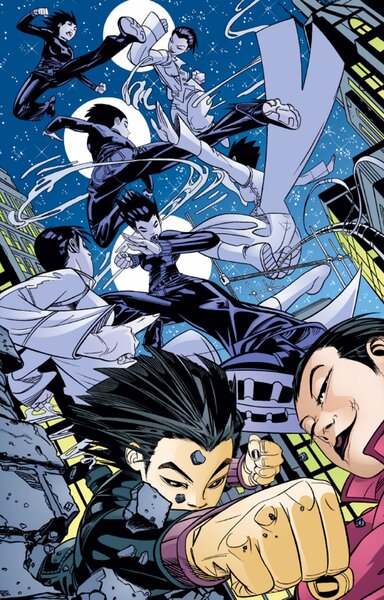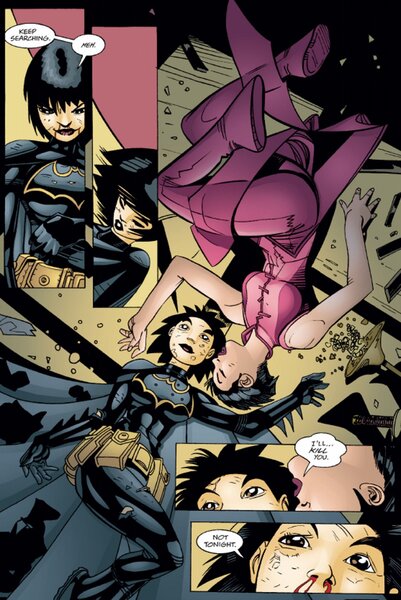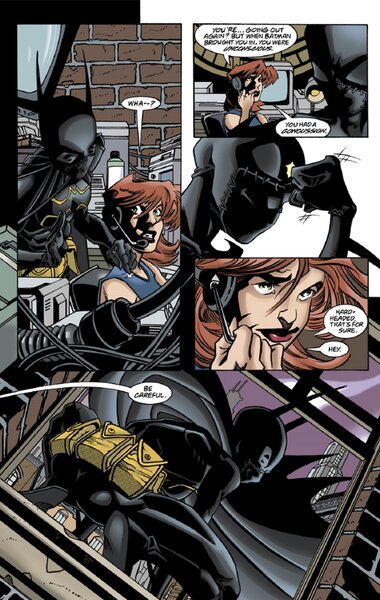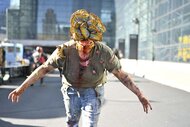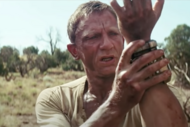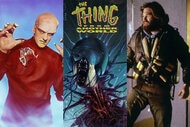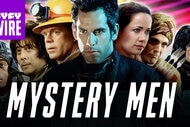Create a free profile to get unlimited access to exclusive videos, sweepstakes, and more!
Looking back on Cassandra Cain's iconic run as Batgirl
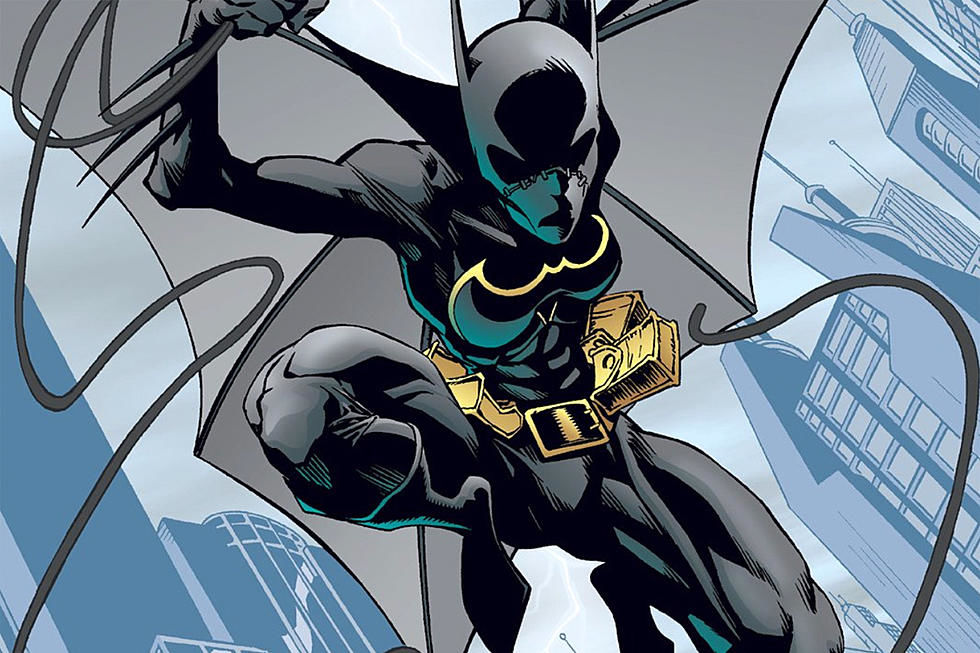
When Cassandra Cain first appeared in 1999, we met a trained killer who desperately wanted to escape the violence of the life she had been born into. Though she was just a teenage girl, Cassandra had been taught since early childhood that her only purpose was to serve as a weapon. She was quickly adopted by Oracle, who trained with her and urged her to apply her skills towards becoming the next Batgirl.
In 2000, this is the character who would become the very first Batgirl to garner her own solo series and one of the only Chinese superheroes, period. The Cassandra Cain in Birds of Prey might not bear much personality resemblance to the Cass Cain of comics, but that's all the more reason to revisit her iconic history as the star of the first Batgirl series.
Batgirl 2000
Cassandra Cain was created by Kelley Puckett and Daimon Scott. The merge of Puckett's skill at writing the truly out-of-her-element Cain and the unique and dynamic visual style of Scott would also define the first few years of the character's run as Batgirl. The team worked on the book consistently (with a few pauses for guest creators to step in and cover fill-in stories) for its first 37 issues, making this one of the more definitive and consistent Batman Family arcs of its time.
Cass' background is one of the most traumatic in comics, which is saying quite a bit. Her father, the assassin David Cain, killed Sandra Wu-San's sister, but agreed to spare Sandra's life if she would bear his child and leave. Sandra agreed, and when she left her daughter behind, she began on her journey to becoming an international criminal known as Lady Shiva. David trained Cassandra to be an assassin and deprived her of language, refusing to teach her words. When she was eight years old, she murdered a man at his behest and was mortified by what she'd done. This act would haunt her well into her teen years, and the guilt she experiences over it is tangible throughout her run as Batgirl.
Parents Versus Chosen Family
Questions of nature versus nurture come up again and again as Cassandra tries to find refuge from the horrors of her past. David Cain attempts to turn Batman against Cassandra by showing him footage of the murder she committed as a child. In the same story, Cassandra, unable to communicate the severity of a situation to Batman, simply rushes headfirst towards a man firing a rifle. She takes many hits and nearly dies, convincing Batman that she is genuinely trying to become a better person.
Cassandra is afraid of her past coming back to get her, but she is most afraid of her father, who she has to beat several times in order to free herself of his influence. Even later in her life, Deathstroke the Terminator is able to utilize similar manipulations against her while she serves on Titans East. Though she ultimately fights Cain and wins, she is never wholly free of his influence.
Throughout the Batgirl series, perhaps even more than David, Cassandra's primary nemesis is her mother, Shiva. Sandra might be a villain, but she had to go through nothing short of hell before she became one. She seeks a worthy opponent in her daughter, but haughtily declares her a disappointment in their first meeting. The feud between them continues up to the very last issue of the series when Cassandra nearly drops her into the Lazarus Pit to save her life but, at Shiva's behest, delivers a mercy kill instead. Of course, that was not the end of Shiva, but it did put a pin in their ongoing attempts to murder one another for a time. Still, as hero/villain dynamics go, this estranged mother who highlights as a mercenary versus her assassin-turned-vigilante daughter is one of comics' most fascinating relationships.
Batgirl Come Home
The stylism of the creative team made this run unique and captivating in a way that continues to hold up. Daimon Scott's angular, energetic art style has garnered him plenty of attention both in comics and in the greater art world. The fight scenes utilize ingenious angles and improbable martial arts action in a way that truly must be seen to be believed. Puckett's sparse dialogue and lengthy inner monologue granted endless depth to Cain and gave massive storytelling opportunities to the expressive style of Scott as Cassandra tried desperately to communicate profound thoughts through her eyes. The isolation of the character is always palpable, but so is her disarming love for Barbara and the rest of the Bat-Family and her desire to truly fit in with them.
After the original creative team left, the series continued with many more excellent Cassandra Cain stories from a variety of creators, continuing her moral struggle with violence and developing her close relationship with Babs, who she refers to as a mother figure. From the beginning to the end of her stint as Batgirl, the mentor relationship between them is one of the core components of Cassandra's story, and it made for a lot of Barbara's most interesting characterization of the time as well. Cassandra idolizes Barbara and Bruce and wants to be more like them, but feels that deep down she can never be truly good. As with many victims of childhood abuse, Cassandra constantly struggles with her own self-worth in a way that always seems complicated and real.
After the series drew to an end, unfortunately, Cassandra went a little off the rails. She turned villain and came in and out of books as a minor character without much depth. Only recently have we seen more of a return to her heroic roots as she has taken on the name of Orphan and trained with Batwoman as her deadliest pupil, then later joined Batman and the Outsiders. Where she'll go next, only time will tell.
What is certain is that few superhero comics delve into the nature of violence and what it actually does to people. PTSD so seldom comes up in conversations around these characters that go through painful, earth-shattering events on a regular basis. The Cassandra Cain story is about many things — forgiveness, self-love, retribution — but a major part of its greatness often lies in its ability to treat long-term trauma as real, valid, and something that takes time and work and love in order to heal.
